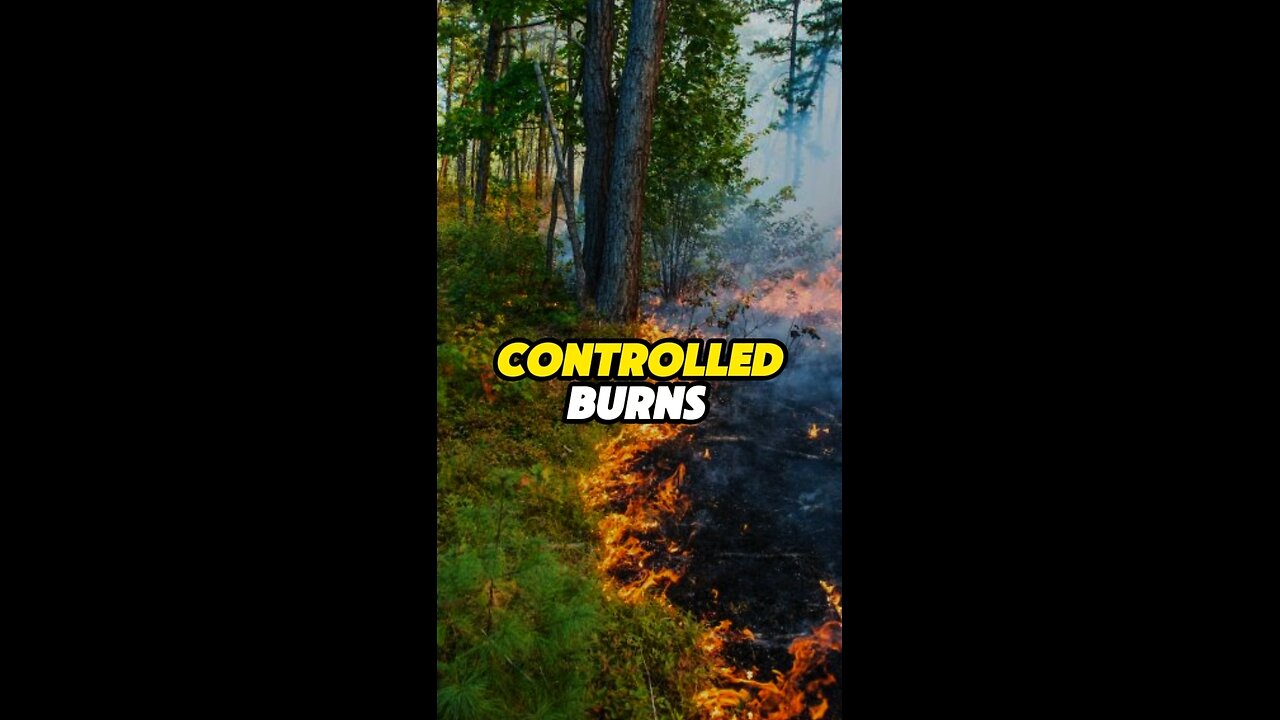Premium Only Content
This video is only available to Rumble Premium subscribers. Subscribe to
enjoy exclusive content and ad-free viewing.

Flame Control
6 months ago
19
Natural fire cycles are ecological processes where periodic wildfires play a crucial role in maintaining ecosystem health and biodiversity.
These cycles vary by biome; for example, boreal forests experience crown fires every 50–200 years, while grasslands and savannas may burn every 1–10 years.
Fire helps clear dead vegetation, recycle nutrients, and stimulate seed germination in fire-adapted species like lodgepole pines and eucalyptus.
Some ecosystems, like chaparral, rely on high-intensity fires for regeneration.
However, fire suppression disrupts these cycles, leading to fuel buildup and more intense, uncontrolled wildfires.
Climate change and human activity are now altering fire regimes, increasing frequency and severity in many regions.
Loading comments...
-
 3:02:18
3:02:18
Barry Cunningham
4 hours agoBREAKING NEWS: PRESIDENT TRUMP THIS INSANITY MUST END NOW!
71.7K123 -
 LIVE
LIVE
StevieTLIVE
3 hours agoWednesday Warzone Solo HYPE #1 Mullet on Rumble
158 watching -
 5:58
5:58
Mrgunsngear
4 hours ago $0.82 earnedBreaking: The New Republican Party Chairman Is Anti 2nd Amendment
13.8K5 -
 2:28:35
2:28:35
Geeks + Gamers
4 hours agoGeeks+Gamers Play- MARIO KART WORLD
18.6K -
![(8/27/2025) | SG Sits Down Again w/ Sam Anthony of [Your]News: Progress Reports on Securing "We The People" Citizen Journalism](https://1a-1791.com/video/fww1/d1/s8/6/G/L/3/c/GL3cz.0kob.1.jpg) 29:34
29:34
QNewsPatriot
4 hours ago(8/27/2025) | SG Sits Down Again w/ Sam Anthony of [Your]News: Progress Reports on Securing "We The People" Citizen Journalism
14.3K1 -
 25:12
25:12
Jasmin Laine
9 hours agoDanielle Smith’s EPIC Mic Drop Fact Check Leaves Crowd FROZEN—Poilievre FINISHES the Job
19.3K20 -
 11:33:26
11:33:26
ZWOGs
12 hours ago🔴LIVE IN 1440p! - SoT w/ Pudge & SBL, Ranch Sim w/ Maam & MadHouse, Warzone & More - Come Hang Out!
10.6K -
 LIVE
LIVE
This is the Ray Gaming
2 hours ago $0.01 earnedI'm Coming Home Coming Home Tell The World... | Rumble Premium Creator
26 watching -
 9:42:31
9:42:31
GrimmHollywood
11 hours ago🔴LIVE • GRIMM HOLLYWOOD • GEARS OF WAR RELOADED CUSTOMS • BRRRAP PACK •
7.56K -
 1:13:28
1:13:28
Glenn Greenwald
5 hours agoGlenn Takes Your Questions on the Minneapolis School Shooting, MTG & Thomas Massie VS AIPAC, and More | SYSTEM UPDATE #506
115K69